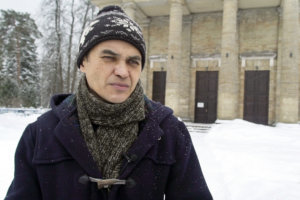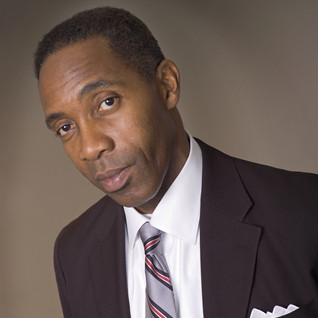In WTOP’s three-part series “Tale of a Troll,” J.J. Green delves into the inner workings of a troll house in St. Petersburg, Russia, that aimed to trick Americans on various social media platforms as part of a Kremlin-backed disinformation campaign.
WASHINGTON — In a job that required him to spread Russian disinformation, working two days on and two days off in 12-hour shifts, Marat Mindiyarov soon became disillusioned. So, he quit and began exposing the operation.
It wasn’t the hours that cemented his decision on Feb. 2, 2015. It was the unethical activities.
“I left for moral reasons,” Mindiyarov said. “To write untruths is already something bad, but when you do it every day and you’re paid for it, it’s something strange and stressful for me.”
When Mindiyarov left, he along with several other former trolls, troubled by what they’d learned, began divulging the explosive deception going on inside the drab, unremarkable building in St. Petersburg, Russia.
Part one: “Inside the ‘internet Research Agency’ in Russia”
Part two: “The Russian operation to target Hillary Clinton”
His first interview was in 2015. There were others. And, for several years, nothing happened.
But, this year, on Feb. 19, things changed for Mindiyarov. His apartment was raided and he found himself in police custody.
“They arrested me and my friend, claiming that we made a call about a bomb threat in Ivanova, the next village,” which is about 30 miles away, he said.
The circumstances surrounding their arrest were murky.
Police told him that the alleged call “was made from the phone of my friend, whom I shared the apartment with. I don’t know why they chose him instead of me,” Mindiyarov said.
He said the call history of his friend’s phone showed no record of that call mentioned by police.
On Feb. 23, Mindiyarov told WTOP that he believed they were framed. “I think this troll factory made it up, because it happened just after an Interview I did with the BBC (about the internet Research Agency).”
Mindiyarov and his roommate were detained hours after that interview. They were released the next day.
Curiously, the interview was precipitated by the U.S. government’s indictment of the man believed to be the financier of the internet Research Agency, Yevgeniy Viktorovich Prigozhin.
On Feb. 16, according to court documents, the U.S. Department of Justice charged that the Internet Research Agency, where Mindiyarov had been employed, “worked in various capacities to carry out interference operations targeting the United States.”
The indictment said that from in or around 2014 “to the present, defendants knowingly and intentionally conspired with each other to defraud the United States by impairing, obstructing and defeating the lawful functions of the government through fraud and deceit for the purpose of interfering with the U.S. political and electoral processes, including the presidential election of 2016.”
Thirteen others Russians were indicted. Some of them, like Prigozhin, are believed to be close to Russian President Vladimir Putin. In fact, Prigozhin, a billionaire food magnate, is called “Putin’s chef,” because of lucrative contracts he won from the Russian government to provide food and catering services.

Prigozhin has also been implicated in a number of distasteful issues the Russian government is allegedly involved in, including mercenaries operating in Ukraine and Syria.
“The Russian government and Mr. Putin are leading the country to some troubles,” Mindiyarov said, “because, now, nobody wants to do the deal with Russia. We’re under sanctions like Iran and North Korea. And, it’s a shame for a country like Russia — a very culturally rich, intelligent country.”
Under increasing international scrutiny after the poisoning of former Russian spy Sergei Skripal and his daughter, Yulia, in Salisbury, England, many nations have sanctioned the Kremlin, calling its leadership corrupt.
“Now, we are occupied by these untrue, unfair people, who are just using the resources of the country and are lying to us every day and suppressing our freedom,” Mindiyarov said.
Midterm elections warning for Americans
Despite the explosive revelations, the consequences and its international pariah status, the Kremlin is believed to be continuing with its trolling operations, and Americans are being warned to recognize the signs.
Jonatan Vseviov, Estonia’s newly credentialed ambassador to U.S., urges Americans to “double-check, maybe even triple-check” what they read on the internet, saying “the more people are aware of disinformation, the more they will doubt the sources.”
He said the more skeptical Americans are about sites pushing dishonest narratives, “the less effect these false narratives will have.”
Estonia has its own painful tale to tell about Russian cyber-meddling. “In 2007, we had an incident including cyberattacks that did not target governmental networks or classified systems, but they targeted Estonia’s way of life,” Vseviov said.
Newspaper and information sources were targeted, and “they had a profound effect. It was a wake-up call. We realized that cybersecurity goes beyond governmental security — it is a whole of society issue.”
The U.S. arguably had its own wake-up call after the 2016 election.
Sen. Mark Warner, D-Va., vice chair of the Senate Intelligence Committee, told WTOP his committee and other U.S. authorities have determined that the Kremlin is now focused on disrupting the 2018 midterm congressional elections.
“We know that the Russians are continuing these activities. As Dan Coats, the director of national intelligence, has said, the red lights are blinking, but it’s not like they’ve turned on the switch at the same level of activity,” Warner said.
Facebook, Twitter and Microsoft recently disabled several Kremlin-linked and other sites believed to be trying to disrupt the 2018 election campaigns.
Mindiyarov, who has seen disinformation from the inside, offered some tongue-in-cheek advice to Americans: “Never go to work at a troll factory,” he said, chuckling.
But, returning to his usual deadpan delivery, he said Americans should remember a piece of advice that most have heard many times before: “Be careful when you are reading something in the internet — it can be fake. Always double-check.”
He said when engaging on social media, beware of large numbers of comments that all say the same thing. “These trolls, they work in thousands. Suddenly, you see thousands of comments at the same time regarding an issue,” he said.
Mindiyarov told WTOP this week that he is doing fine and feels secure, despite the recent attention his comments have attracted.







